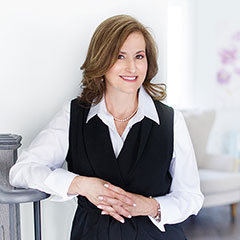Let's talk about what’s going on in the Greater Toronto Area’s (GTA) real estate market in April 2024. It’s been a bit of a rollercoaster ride with some areas picking up while others face challenges.
Overall sales are down 5% compared to April 2023 but if you recall the Bank of Canada last spring communicated that the next rate announcement was going to be a rate drop and what happened was two rate increases – one in June and another in July 2023. The promise of rate cuts resulted in the 2023 spring market bouncing back. However, After the 2 rate increases in June and July 2023, the real estate market drastically slowed down. In April 2024 new listings were up 47.2% compared to April 2023 and the average sale price is up .03% compared to April 2023.
Starter Homes Making a Comeback:
The starter freehold homes priced in and around $1 million have experienced a bounce back. They are back in demand and are selling quickly and often selling with multiple offers with buyers who sat on the sidelines most of 2023 jumping back into the housing market. Buyers are competing again, hoping to snag a deal before the interest rates drop.
More Houses on the Market, Higher Hopes for Sellers:
We are seeing a lot more houses being listed for sale compared to last year, up by about 47.2%. Sellers are feeling optimistic, hoping for a busy spring with interest rates expected to fall soon. This increase in listings shows sellers are feeling confident as they see more and more homes sell quickly, and buyers are eager to jump in and get into the housing market.
Condo Market Hit the Brakes:
But it’s a different story for condos, especially in Toronto. There’s suddenly a flood of condos for sale. It’s like the market hit a pause on condos, signaling some tough times ahead for this part of the market. However, given that construction of new condos has also come to a halt, and the aggressive population growth the condo market will eventually bounce back.
Unfortunately, the recently announced changes to the capital gains tax are most likely not helping the condo market as some investors may have decided to attempt to sell before the changes to the capital gains tax come into effect on June 25th.
Population Boom and Housing Crunch:
The main reason for the dramatic spike in demand for housing is Canada’s aggressive population boom in the past 3 years. More people means more demand for housing, which will in the foreseeable future result in increased pressure on housing prices until the supply of housing can meet demand which will likely take some to happen.
So, April 2024 shows us that the GTA’s real estate market is a bit of a mixed bag. Freehold homes in and around the $1 million range are selling quickly, $2- 3 million sales are slow and over $5 million is experiencing a robust market. The cottage country market continues to be sluggish which is not completely surprising as this is the market that slows down the quickest during economic uncertainty.
Some parts of the real estate market are heating up while others are cooling down, As we navigate through these changes, it’s all about being smart and staying informed to make the best decision for buyers, sellers, and everyone in between.
If you have any questions or are curious about what is happening in your neighbourhood and would like to chat, reach out. I would be happy to help
Condo Market Challenges:
The condo market in Toronto is facing unique challenges, particularly for investors with variable-rate mortgages experiencing negative cash flow. A spike in condo listings is evident. , and the recent tax changes to Airbnb may further impact condo inventory shortly. The federal government recently announced that owners of short-term rentals will not be allowed to deduct expenses from rental income moving forward for short-term rentals with some exceptions such as renting space in primary residences and cottage properties.
Looking Ahead:
While the current situation poses some challenges for sellers and buyers, there is s glimmer of hope on the horizon. Economic indicators point to the BOC potentially starting to lower the overnight rate sometime between May – July 2024. The Bank of Canada has recently softened it’s language to imply that inflation doesn’t necessarily need to reach the target of 2% before they will consider starting to drop the overnight rate, which suggests a more flexible approach to monetary policy.
As we navigate these complex market dynamics, staying informed and adapting strategies according is key for buyers and sellers alike. Keeping a close eye on the economic indicators and central bank decisions to anticipate potential shifts in the real estate market will be key. My recommendation to buyers is if now is a good time to buy, you can get qualified for a mortgage and feel comfortable carrying the monthly mortgage payments now is an ideal time to get actively looking for your dream home. As of now you have negotiation power and can include conditions to ensure your purchase is a good investment you also have more inventory to pick from and will most likely not have to compete with other buyers when you find the perfect home for you.
Do you have questions about buying or selling in our current market? Reach out and let’s chat. .


